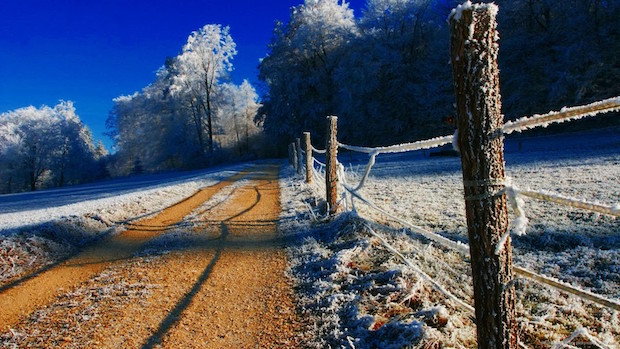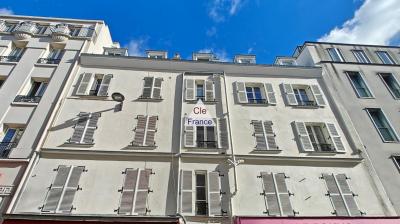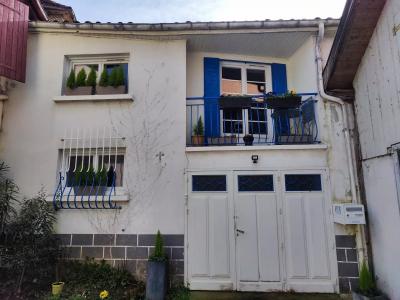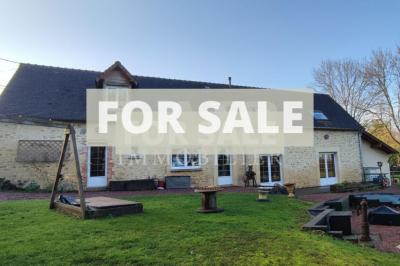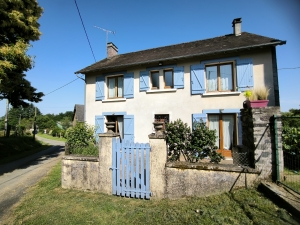If you are planning a viewing trip to France during the winter months then let us have a look at how you can avoid winter driving problems.
Of all the seasons, it is probably winter which presents the most challenging conditions for motorists. Falling temperatures combined with snow and ice can cause even the most experienced drivers a multitude of problems.
There are some simple steps we can all take in order to make motoring safer and more trouble free.
Did you know that when the time comes to insure your car in France we can supply the key points of your policy document in English - Find out more about our motor insurance.
Before you go out
Ensuring your windscreen, windows and mirrors are kept clean and free of snow or ice is a good starting point. And having wipers in good working order and a plentiful supply of water and winter-ready screen-wash should ensure your visibility isn’t impaired.
Remove any snow from your bonnet and roof as this can blow off at speed causing a hazard for you and other motorists.
Grip is going to be important and this means your tyres should be in a good condition. The legal limit for tread is 1.6mm but it is recommended that you have at least 3mm tread. In really wintry conditions, drivers may consider using snow chains or snow socks.
Plan your journey before you set off and give thought to locations which might be badly affected, such as flood prone areas, and monitor local weather forecasts.
Coping with winter weather
When roads are slippery it’s advisable to stay in as high a gear as possible and keeping your revs low. This reduces the chance of spinning your wheels and losing control.
Pay particular attention to your speed and the distance between you and the car in front. In wet conditions you should double the distance you normally would and in snow and ice distances should be up to 10 times further than normal.
As you approach a bend in the road you should have already slowed before entering the bend. If you do begin to skid, steer gently into it. For example, if the rear of the car is sliding to the right, steer to the right. Do not take your hands off the steering wheel or brake hard.
Dipped headlights should be used in heavy rain and snow – daytime running lights may not be adequate. And if visibility falls below 100m then use your fog lights.
Don’t be lulled into a false sense of security during a long journey in your nice and warm car. Keep an eye on the temperature outside and if it falls below freezing adjust your driving technique accordingly.
Even if you think frost has thawed, be aware that microclimates can occur on roads. For example, roads under bridges are often the first to freeze and the last to thaw.
Avoid a breakdown
Cold weather can exacerbate underlying mechanical problems with cars so follow these tips to ensure your car is in good condition.
Check your fuel, oil, screen-wash and coolant levels before any journey, and keep an eye on your tyres. Make sure there is adequate tread and be alert to any uneven wearing as this can indicate problems with tyre pressures or steering.
And make sure your lights are working correctly – faulty bulbs or fuses could prevent your headlights, indicators or brakelights from working when you need them most.
Your brakes need to be in tip top condition for winter so if you notice they are becoming ‘spongy’, creating unusual noises, or if your car pulls to one side under braking then you should immediately get them checked by a mechanic. Even if you don’t encounter these symptoms keeping a check on how the pads are wearing is good practice.
Other warning signs to be aware of are ‘flaring’ engine revs during hard acceleration (which could mean a slipping clutch), intermittent knocking or droning sounds (possibly a worn wheel bearing), engine hesitation (may indicate a fuel system problem), or engine stutter (could indicate deteriorating spark plugs or spark plug leads).
More immediate problems can be indicated by a loud knocking noise from the engine – in which case you should stop your car and check the oil level on flat ground, topping up with a suitable grade of engine oil if you’re below the minimum on the dipstick.
What to pack in the car
A list of essentials which the RAC recommends you should carry in your car includes:
Ice scraper
Torch and spare batteries
Warm clothes and blankets
High-visibility jacket
Boots with good grip
First aid kit
Jump start cables
Empty fuel can
Food and drink
Shovel
Reflective warning sign
Road atlas
Sunglasses
Phone charger
Here are some French words that might be useful to you
La ceinture de sécurité - Seat belt
Le klaxon - horn
Le volant - the steering wheel
Le tableau de bord - the dashboard
Le clignotant - the turn signal/indicator
Le phare - the headlight
Le rétroviseur - the rearview mirror
Le frein - the brake
Le capot - the hood
Le coffre - the trunk
Le pneu - the tire
Le pare-brise - the windshield
L’essuie glace (m) - the windshield wiper
Le permis de conduire - driver’s license
La plaque d’immatriculation - license plate
Démarrer - To start (the ignition)
There are also certain phrases that might be useful if you fall into any problems while driving in France. Hopefully, you’ll never need to use some of the following phrases!
L’autoroute est payante - The highway charges tolls.
Je suis en panne d’essence - I ran out of gas.
Il faut que je fasse le plein - I need to fill up the tank.
J’ai un pneu crevé - I have a flat tire.
C’est un feu vert/rouge - It’s a green/red light.
Il faut gonfler les pneus - The tires need to be inflated.
Il y a un problème de freins - There’s a problem with the brakes.
Le pare-brise est cassé - The windshield is broken.
Ma voiture est en panne - My car broke down.
If you are traveling this summer, amusez-vous bien et bon voyage!
More advice
For more winter driving advice you could visit the RAC’s winter driving pages.
Did you know that when the time comes to insure your car in France we can supply the key points of your policy document in English and with our English staff and English Speaking Staff you will have the easiest of times contacting and sorting out any insurance claims that you may have in the future, we hope you don't have to claim but if the need arises you can be assured of a quick and easy service in your own language.
Find out more about our motor insurance.
For everything you need to know about French property visit www.clefrance.co.uk
